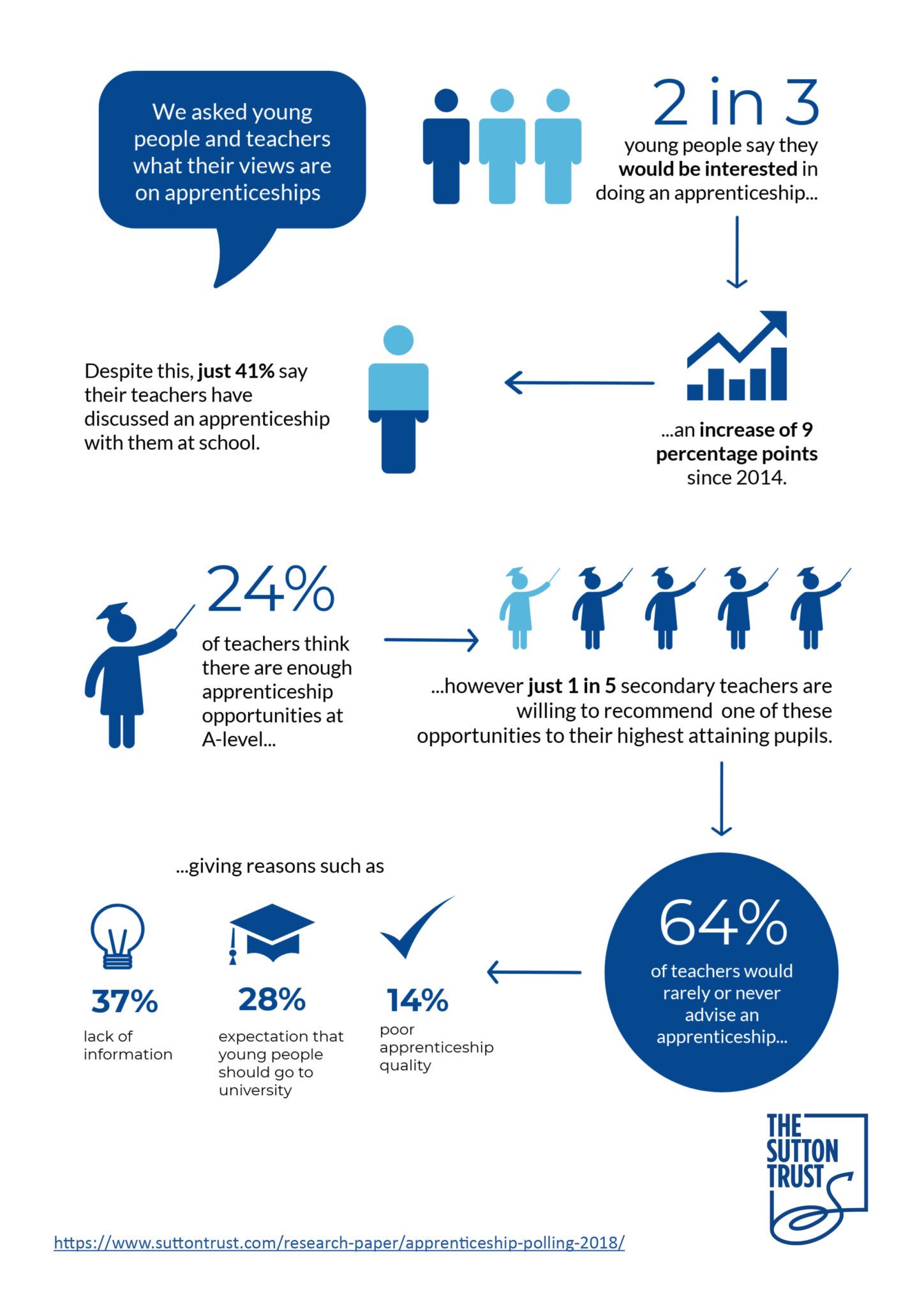Report Overview
As part of the Sutton Trust #BetterApprenticeships campaign, and providing context to the issues discussed at the Sutton Trust Better Apprenticeships 2018 Summit, the Sutton Trust asked both young people and their teachers for their views on apprenticeships.
On behalf of the Trust, Ipsos MORI surveyed 2,381 young people aged 11-16 at secondary schools across England and Wales between February and May 2018. The National Foundation for Educational Research (NFER) surveyed 1,246 teachers and school leaders across England, 583 of which were at secondary school level, in March 2018. The Trust previously surveyed both groups on this issue in 2014.
Findings show perceptions of apprenticeships amongst young people have improved over the last four years. However barriers still exist for young people seeking advice. Teachers are still unlikely to recommend apprenticeships to their highest achieving pupils, indicating there is some way to go before vocational routes are given the same status as higher education routes.
